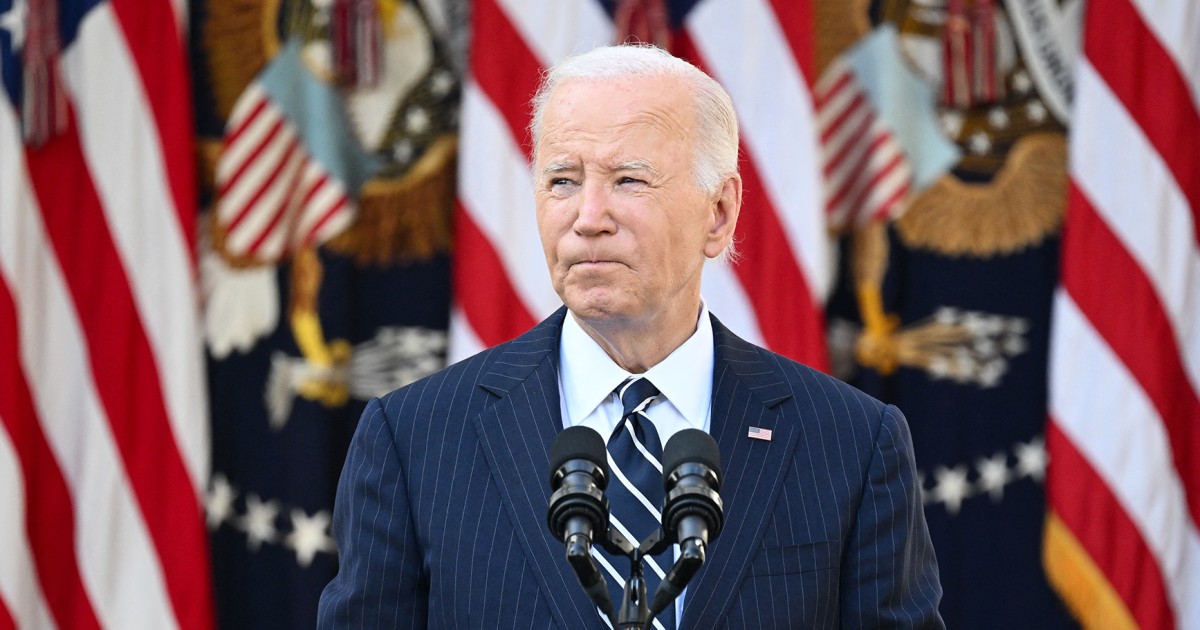Summary
President Joe Biden’s economic achievements—lowering inflation, reducing gas prices, creating jobs, and boosting manufacturing—are largely unrecognized by the public, despite his successes.
His tenure saw landmark legislation like the Inflation Reduction Act, CHIPS Act, and major infrastructure investments.
However, Biden’s approval ratings remain low, attributed to inflation backlash, weak communication, and a media landscape prone to misinformation.
Democrats face a “propaganda problem” rather than a policy failure, with many voters likely to credit incoming President Trump for Biden’s accomplishments due to partisan messaging and social media dynamics.



The stock market is 80% owned by 10% of people… Better stock market= more profits for rich… Those profits come from our labor… The better “the economy” is doing, the worse the workers are doing. The markets went through the roof for Trump because the rich know he’s going to let them rape and pillage without constraints of any kind.
Yeah, and here’s the trick no one talks about; since the 80s, businesses (with the help of the government) started killing off pensions in favor of 401Ks. That effectively meant the middle and lower class, who are by far minority holders in the stock market, still need it to perform well, otherwise their retirement savings will be wiped out. So they’ve basically created a system where an entire generation is incentivized to allow the 1% to be as opportunistic and greedy as they like, because the crumbs they’re going to retire on are directly tied to the success of the wealthiest Americans.
401k is superior in almost every way though. The big downside is there isn’t a mandatory contribution. Pensions forced an employee to work in the same company for 20-30 years and hope they never got acquired or went bankrupt. Then they could retire and still hope the company never went bankrupt, because the pension funds were universally underfunded. Lots of people faced their pension being reduced by a significant amount after they’ve been retired for a decade or so.
A 401k gives the worker the power to move without jeopardizing their retirement. It allows the default death benefit to be 100% transferable to another. It’s not a surprise when a 401k runs out of money. All you have to do is fill out a form when you start a job to put a reasonable percentage into it.
Huh, I didn’t think about how the 401K is transferable, but it makes sense that it’s a plus; it’s how everyone wishes health insurance worked. But does it matter if you move companies if your next employer offers a similar pension? Wouldn’t that mean you just had two smaller monthly payments vs. one larger one? And weren’t pensions protected from bankruptcy by Employee Retirement Income Security Act? I thought it was because of that Act that companies justified phasing out their pensions for 401Ks.
Sorry for all the questions. Pensions are sort of an artifact of a lost time for folks my age, but most folks that I know that are my parents’ age seem to prefer the stability of their pensions to 401Ks.
Pensions are protected from bankruptcy, but they aren’t guaranteed the same payment. There are maximum payments and it’s complicated to give an accurate number, because it depends on the type of pension plan, the age of retirement, years of service, and generally doesn’t honor bonuses like early buyouts.
Pensions have a number of multipliers that make job hopping less ideal. The formula is roughly percentVested x accrualRate x yearsOfService x maxSalary. Vesting hits 100% at 5-7 years, accrual is roughly 1.5% depending on employer. By leaving early you take big hits on the vesting and max salary multipliers that cause it to be a lot less money. One job for 30 year with 100k mak salary would be a 45k pension. 3 jobs, 10 years each with 50k, 75k, and 100k max salaries is only a 33,750 pension.
…OK, I’m fairly sure I understood…most of that. Thanks for the alternative perspective. I’ve generally only heard the negatives from people who’ve had their pensions replaced by 401Ks, so I guess it’s good to know what people see as the positives.
Well said